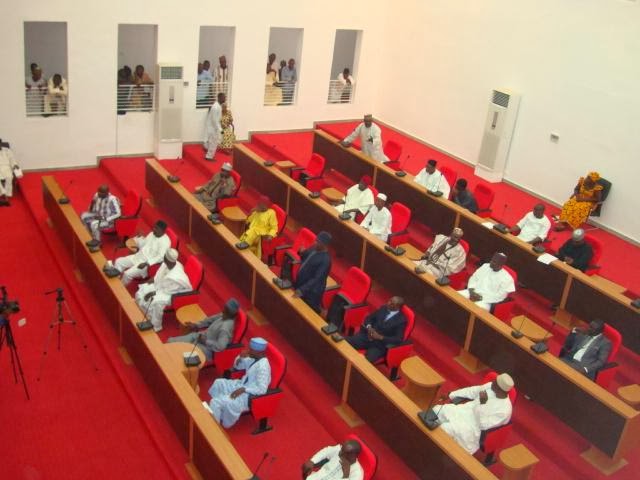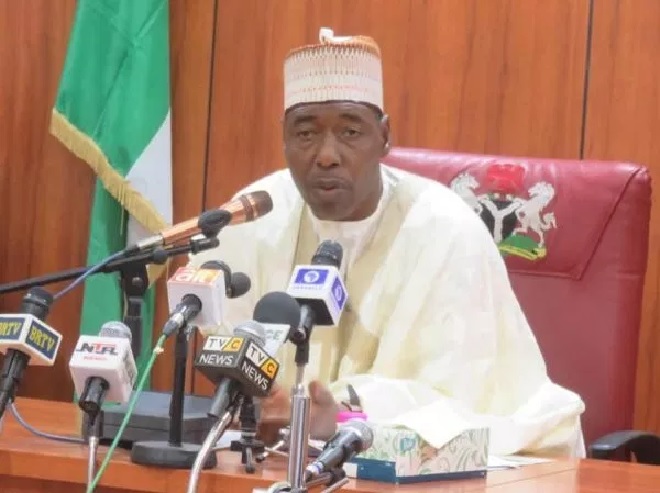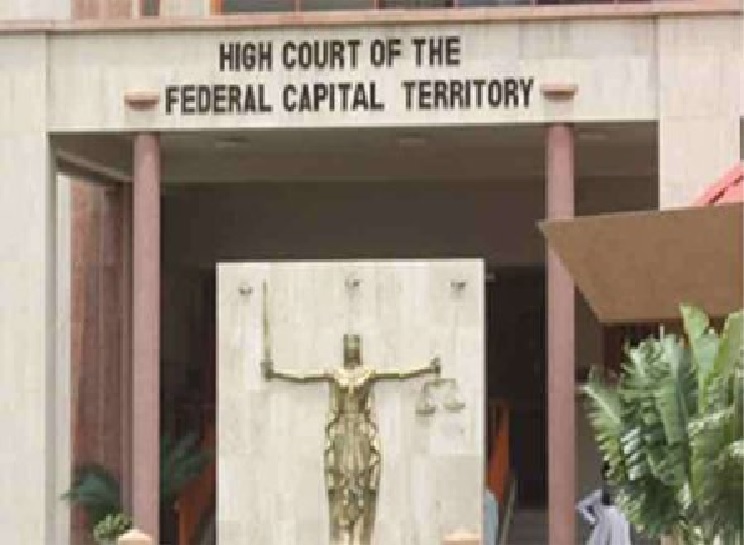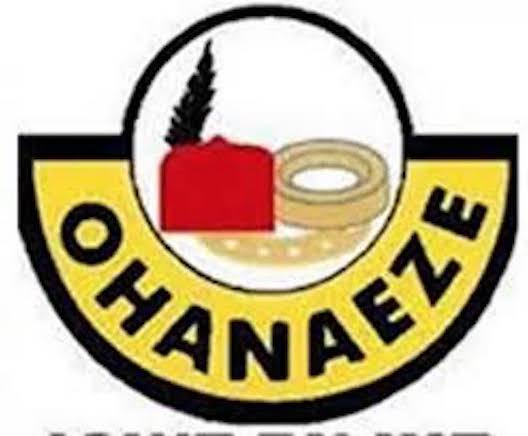NEWS
Kwara Speaker, Lawmakers Demand Template for Infrastructural Development

From Alfred Babs, Ilorin
The Speaker of the Kwara State House of Assembly, Rt Hon Yakubu Danladi-Salihu has advised politicians to redirect energy to provision of more infrastructural development as dividends of democracy for the people instead of making agitation for power shift to their area in the 2023 elections.
Speaking at a Media parley organized by Association of Kwara State Online Media Practitioners (ASKOMP) in Ilorin yesterday, Yakubu said that more focus should be placed on how to improve the life of the people in the four year tenure of the administration than clamouring for power shift.
Answering a question on his take on power shift to Kwara North Senatorial zone in the next election as being advocated in the state, Yakubu who is from the zone said, “I think it is too early to start discussing 2023 general elections.
Let’s focus on fulfilling our campaign promises and deliver dividends of democracy to people across 16 local government areas. Nobody can guarantee what will happen tomorrow, so why are we disturbing ourselves about power shift or 2023 elections. Let’s use this four years for the betterment of our people and the state at large.“Life itself is not assured, so as mortals, we should focus more on the immediate and leave the future in God’s hands,” he said.
The Speaker who said the present state administration headed by governor Abdulrahman Abdulrazaq has provided more infrastructure in the three Senatorial zones of the state said that many health care facilities have been revived, Water facilities renovated, rural roads made to be motorable while Schools and educational facilities have been renovated and made functional.
Yakubu said that the state legislature in it two years score card passed 14 bills, made 29 reports and passed 32 Resolutions adding that all the bills passed have direct impact on the people of the state.
He explained, “Apart from the appropriation bills, the Social Investments bill which provides funds for Owo Arugbo (Money for Elderly people), Owo Isowo (Trader Money) and Online Loan and the Geographical Information bill as well as the Sports Commission Bill are making impact in the 16 Local government Council areas of the state.”
The Speaker also debunked insinuations that the 9th Assembly is a rubber stamp to the executive arm of government, stressing that the Assembly does not receive command or pressure from anybody in the performance of it job.
He declared, “Whoever witnessed the last screening of commissioner nominees, budget defence among others will sure know that members of the 9th Assembly can’t be and would never be pushovers.
“People will always try to rationalise the reasons why their expectations of a fractious relationship between the legislative and executive arm isn’t achieved and that is why they will attempt to blackmail one of the partners, often times the legislative arm.
“They have refused to accept the fact that we are all (executive and legislative arm) babies of the same Otoge parent, therefore our primary focus is a progressive Kwara. In that light, we already have unifying goal congruence, so seeing us fighting will be nearly impossible.
“That’s however not to say we don’t have disagreements, divergent opinion among others. But we have a very effective internal mechanism that addresses differences as they arise without having to go public.
“For those saying we are rubber stamp, what I think they expect from us is open confrontation with the executive, or maybe media confrontation, I can assure you that will not happen with the present partnership existing between the House and Executive.
“Why do we need to fight the executive when we all have been able to latch on the partnership to individually and collectively facilitate projects back to our constituencies? Virtually all the 24 constituencies have at least a project to show for the partnership, with many more on the way,” he added
NEWS
NASS Moves to Unlock Financial Opportunities for Local Contractors

The Joint Committee on Works in the National Assembly has called for innovative interventions to grant local contractors access to finance and unlock their potentials to contribute to national development.
The leadership of the committees made the call on Monday in Abuja, at the opening summit entitled “Empowering Local Contractors for National Development: Bridging Gaps and Building Partnerships.
”The Chairman, Senate Committee on Works, Sen.
Barinada Mpigi (PDP-Rivers) said that local contractors were faced with challenges of limited financing, inadequate equipment and insecurity.He said that the challenges were hindering the potentials of the contractors to contribute to national goals.
The senator suggested innovative solutions like “tokenization of assets and tax credits” to bridge the financial gap experienced by contractors.
According to Mpigi, indigenous contractors have not been given opportunities over the years in the nation’s infrastructural sector.
He said that promoting fair procurement processes, engaging with local communities and prioritising environmental sustainability, while ensuring that infrastructure projects were built with the future in mind must be prioritised.
Mpigi urged the Securities and Exchange Commission (SEC) to explore innovative approaches such as the tokenisation of assets.
According to him, this process allows local contractors to convert their assets into digital tokens, facilitating access to funds from a broader pool of investors.
“Challenges such as limited access to long-term financing, inadequate equipment, lack of insurance facilities, and issues of insecurity have long been obstacles to their growth and success.
“By unlocking these new financing opportunities, tokenization can empower local contractors to raise capital, enable fractional ownership, and improve liquidity in the sector.
“The Federal Inland Revenue Service (FIRS) can play a crucial role in supporting our local contractors by introducing easier access to tax credits, which will ease their financial burden.
“Such incentives can encourage investment in the sector, providing them with much-needed relief and fostering growth,” he added.
In his remarks, the Chairman, House Committee on Works, Mr Akin Alabi (APC-Oyo) said that there was need for partnerships among stakeholders that prioritise local contractors in adherence to Executive Order 5, which promoted local content.
He said that the workshop was aimed at strengthening the bridges among the government, stakeholders and local contractors as well as construction companies, foster partnerships that would empower indigenous industries to transform Nigeria’s infrastructure.
According to him, Nigeria has a diverse landscape which holds immense potential for growth and development.
“However, to truly unlock these potentials, we need an approach that maximises local resources, skills and talents.
“It is time to make the call to embrace our local contractors not only as stakeholders but as partners in our journey to national development.
“We need a construction industry that is driven by local content, benefitting our people and fortifying our economy.
“Today’s summit provides an opportunity to address challenges, explore solutions and deepen collaborations between indigenous contractors, construction companies and key policymakers,” he said.
In her goodwill message, the President, Nigerian Society of Engineers (NSE), Ms Margaret Oguntala, acknowledged the importance of collaboration among the various stakeholders in the country’s infrastructural sector.
Oguntala, represented by the President, Association of Consulting Engineering in Nigeria, Mr Kam-Salem Bukar, called the attention to the principles of Executive Order 5 signed by former President, Muhammadu Buhari.
She said that policymakers and legislatures were tasked with crafting laws that empowered local content and infrastructure initiatives.
According to her, by reinforcing the principles of Executive Order 5, they can ensure that Ministries, Departments and Agencies prioritise Nigerian professionals and resources in public procurement.
The NSE president identified professional consulting engineers and engineering regulatory bodies as important partners with significant input in the infrastructural arena.
Oguntala commended the organisers of the event and called for regular dialogue, training and capacity building as well as regulatory oversight to promote Nigeria’s infrastructural development. (NAN)
NEWS
Child Rights Law: Abia Govt Vows to Punish Erring Parents from Jan. 1, 2025

The Abia Government has said that, effective from Jan. 1, 2025, it will make it a punishable offense for parents or guardians who fail to send their children or wards to school.
The Commissioner for Information and Culture, Mr Okey Kanu, made this known on Monday during a press briefing on the outcome of the State Executive Council meeting at the Government House, Umuahia.
Kanu said that this initiative reflected the state’s commitment to ensuring that every child received a basic education, with free schooling available up to the end of junior secondary school in line with the 2006 Abia State Child Rights Law
“There is no reason whatsoever why parents should not send their children to school.
“The issue of indigency is no longer the reason for non acquisition of free and basic education in Abia State so as from the first of January 2025, when this policy will come into full effect, parents who default would be prosecuted under that law.
“This course is part of the reforms that are ongoing in the educational sector,” he said.
He said that the policy underscored the government’s stance that financial constraints should no longer be a barrier to education for any child in Abia.
According to him, the initiative aligns with the ongoing reforms carried out by the government in the education sector.
Kanu said that the present administration had introduced several key policies and initiatives to advance education, infrastructure, and workers welfare.
He further said that the relocation order by the government for the relocation of Umuahia campus of Abia State University back to its Uturu main campus remains firm.
Kanu expressed the readiness of the government to engage with affected stakeholders to address any concerns,and said that the decision was made with the students’ and the institution’s best interests in mind.
On the new minimum wage, he expressed the readiness of the government to dialogue with the organised labor to address any concerns around implementation of the new minimum wage.
Kanu said that the present administration desired to ensure that transparency and mutual understanding existed between the government and labor unions.
On infrastructure, he said the government had approved contracts for the reconstruction and rehabilitation of nine roads across Abia’s three senatorial zones.
Kanu said that the government had given directives for the immediate rehabilitation of the Osisioma flyover, which had started deteriorating two years after its commissioning by the previous administration.
He reiterated the resolve of the present administration to deliver substantial infrastructure improvements. (NAN)
NEWS
Borno Gov’t Lauds NHRC’s Probe of Alleged Abuse

The Borno government on Monday commended the National Human Rights Commission (NHRC) and the Special Independent Investigative Panel for their work in probing allegations of abuse by the Nigerian military.
Initial reports by Reuters in December 2022 claimed Nigerian military personnel were involved in forced terminations of pregnancies for over 10,000 women affected by Boko Haram insurgents as well as alleged killings of infants.
The reports claim this was part of the efforts to curb Boko Haram’s influence in Northeast of Nigeria.
Speaking at the panel’s final report presentation, Borno State Attorney General and Commissioner for Justice, Hauwa Abubakar, acknowledged the severity of the allegations against the counter-insurgency operators.
She thanked the NHRC, led by Executive Secretary Barrister Tony Ojukwu, retired Supreme Court Justice Abdu Aboki, and the panel members for their commitment to transparency.
“Receiving the findings of the Special Independent Investigative Panel today, I am filled with both gratitude and responsibility.
“This report represents a significant step toward addressing these grave allegations, and I commend the panel’s dedication in the difficult circumstances,” she said.
She highlighted the leadership of Gov. Babagana Zulum in prioritising humanitarian assistance and protecting the dignity of displaced persons in Borno.
She restated the state government’s commitment to meeting the people’s immediate needs and promoting their long-term stability.
The Attorney General emphasised the importance of the panel’s findings for understanding Borno’s complex humanitarian challenges, particularly as counter-insurgency efforts continue.
“The findings are invaluable as we work to strengthen human rights protections and ensure accountability in our state,” she said.
Abubakar said that the state’s ongoing partnerships with NGOs, UN agencies, and other organisations focused on healthcare, education, and securing shelter for those affected by conflict.
She said the government had also prioritised community resilience programmes in education and economic empowerment to help prevent future crisis.
Abubakar urged both federal and state institutions, including the Nigerian military, to act swiftly on the panel’s proposed measures.
She stressed on the need to improve conditions within IDP camps and to enhance record-keeping practices to ensure the well-being of the people.
The attorney general also called on all stakeholders, including NGOs, UN agencies, and the Nigerian military to join in efforts to restore human rights and dignity across Borno.
“Together we can establish a framework for accountability and justice that offers hope to victims and a model for other regions facing similar crises,” she said.
The event was attended by Borno’s Commissioner for Information and Internal Security, Professor Usman Tar; the Executive Secretary, Borno State Primary Healthcare Board, Prof. Muhammed Arab-Alhaji; and the representatives of the Shehu of Borno.
Others included senior government officials, the media, UN and civil society organisations.
Also at the event were representatives of the military, NSCDC, DSS, medical practitioners, the NBA, CJTF, and various community, youth and women’s groups. (NAN)
















